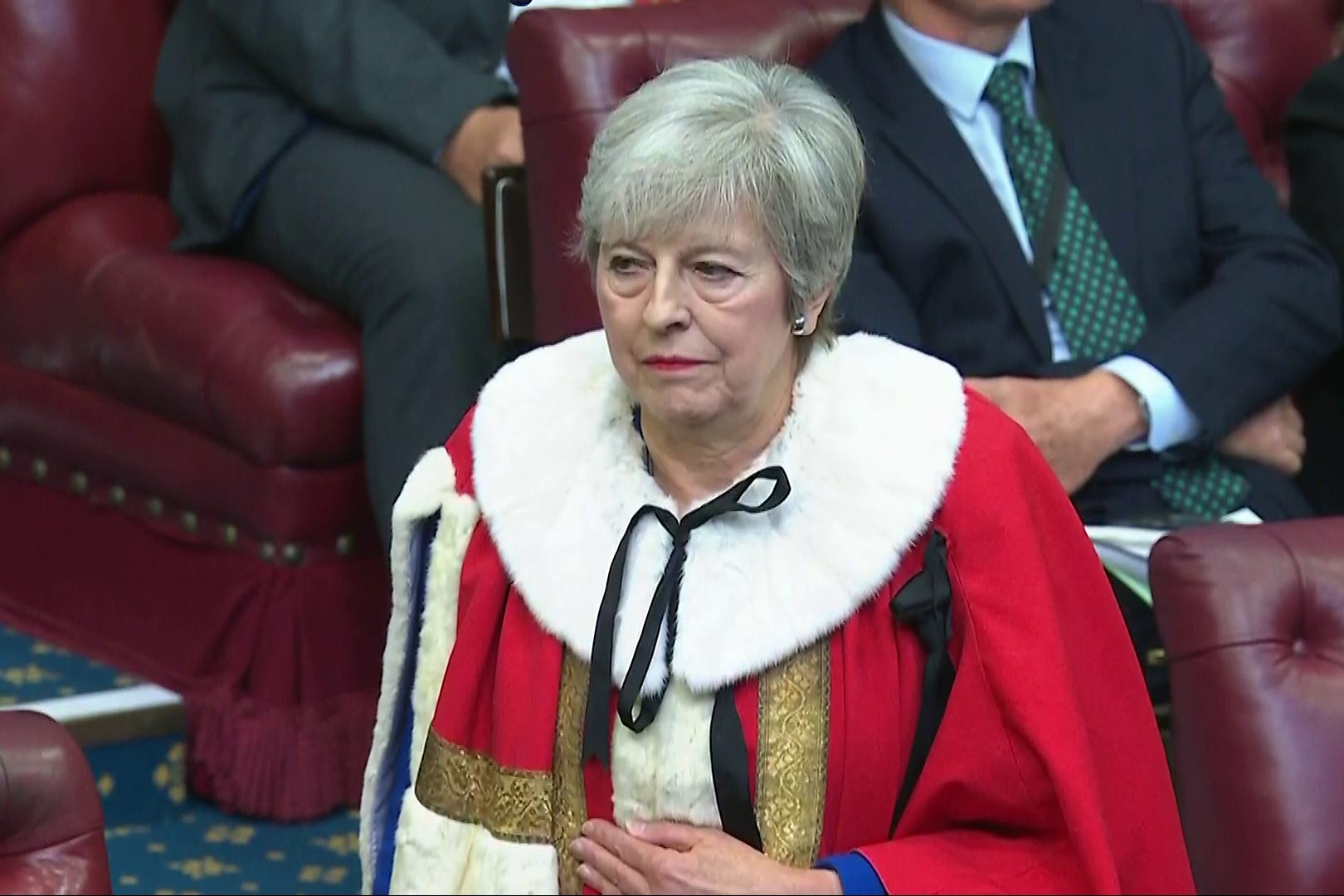Former prime ministers unite against assisted dying as Grieve hints it is against rule of law
Boris Johnson, Liz Truss and Theresa May come out against bill, which would allow terminally ill adults with less than six months to live to end their lives early
Your support helps us to tell the story
From reproductive rights to climate change to Big Tech, The Independent is on the ground when the story is developing. Whether it's investigating the financials of Elon Musk's pro-Trump PAC or producing our latest documentary, 'The A Word', which shines a light on the American women fighting for reproductive rights, we know how important it is to parse out the facts from the messaging.
At such a critical moment in US history, we need reporters on the ground. Your donation allows us to keep sending journalists to speak to both sides of the story.
The Independent is trusted by Americans across the entire political spectrum. And unlike many other quality news outlets, we choose not to lock Americans out of our reporting and analysis with paywalls. We believe quality journalism should be available to everyone, paid for by those who can afford it.
Your support makes all the difference.Three former prime ministers have come out against the assisted dying bill, as Dominic Grieve warned it would breach the rule of law.
Boris Johnson, Liz Truss and Theresa May are all opposing the bill, which does not have the backing of a single former PM.
And ex-attorney general Mr Grieve claimed the bill would be blocked on several grounds by the European Convention on Human Rights (ECHR).

He was among five former government law officers warning MPs to vote against the assisted dying bill on Friday, with its passage on a knife-edge. In their letter, they warned the law would have “serious implications” for the judiciary in the UK and seeks to “overturn decades of legal convention”, The Times reported.
Mr Grieve cited previous rulings under the ECHR that decriminalising assisted dying would breach a state’s obligations if it did not come with adequate safeguards against abuse and coercion, adding that the upcoming bill “fails to provide such safeguards”.
And, in a further blow to Kim Leadbeater’s private members bill, Mr Johnson, Ms Truss and Baroness May all joined opposition to its passage. While none of the former Tory PMs will be able to vote on the measure on Friday, reports confirmed that the three would oppose it if they did.

Ms Truss told The Daily Telegraph she was “completely opposed” to the change, adding: “It is wrong in principle: organs of the state like the NHS and the judicial system should be protecting lives, not ending them.
“No doubt, as we have seen in Canada, vulnerable people would be put under appalling pressure to end their lives early. The law would be ripe for being exploited by the unscrupulous. MPs should vote this terrible Bill down and instead focus on improving health services.”
Sources close to Baroness May and Mr Johnson made clear their opposition, while Rishi Sunak has not yet indicated how he plans to vote.
The major interventions come after Gordon Brown declared he does not support the legalisation of assisted dying, arguing that the state of the NHS means it is not the right time for the momentous change.
The influential ex-Labour PM said the days spent with his wife Sarah beside their dying baby Jennifer’s bed were “among the most precious days of our lives”.

And, in an intervention which threatens to derail Ms Leadbeater’s Terminally Ill Adults (End of Life) Bill, Mr Brown called instead for the establishment of a commission to devise a “fully funded, 10-year strategy for improved and comprehensive palliative care”.
With days to go before the historic vote, the result is on a knife edge, with backers of the bill believing they have enough support, while opponents believe they may be able to block it.
Ms Leadbeater has described her bill as the most robust in the world, with “three layers of scrutiny” in the form of a sign-off by two doctors and a High Court judge. It would also make coercion an offence with a possible punishment of 14 years in jail.

The legislation, which covers England and Wales, states that only terminally ill adults with under six months left to live and a settled wish to die would be eligible.
Ms Leadbeater said opponents of plans to legalise assisted dying “mustn’t be hearing” the stories of the terminally ill.
She called for the debate to focus on “the problem we have to fix” rather than “who in the cabinet has fallen out with who else in the cabinet”.
A cross-party group of MPs, comprising Conservative MP Ben Spencer, Lib Dem MP Munira Wilson, and Labour’s Anna Dixon, have co-sponsored a so-called “wrecking amendment”, which would scupper the bill if enough MPs supported it.
Ms Dixon on Wednesday told BBC Radio 4’s Today programme: “There are a lot of complex legal and practical considerations that we don’t feel a private member’s bill is going to allow us to adequately address, and that’s why we’ve put down this cross-party amendment.
“The independent review would be something like a law commission or royal commission, and it would enable experts to look in much more detail at issues around, for example, coercion.”
She continued: “As a legislator it’s incumbent on us when we make decisions not only to understand the legal implications, as I’ve suggested, but also to understand that wider societal impact. Who is going to be affected, how much is it going to cost?”
“There isn’t that weight of evidence and that’s why we think an independent review, like a royal commission, is needed to bottom out these issues,” Ms Dixon added.
Hitting back at claims that the bill has not had enough time for debate, Ms Leadbeater told the programme: “There are very clear, strict, eligibility criteria for this legislation, so the concept of a slippery slope, I will dismiss that.
“Once this bill is passed, it cannot be changed, the title of the bill is intentionally ‘terminally ill adults’ only.”

Join our commenting forum
Join thought-provoking conversations, follow other Independent readers and see their replies
Comments